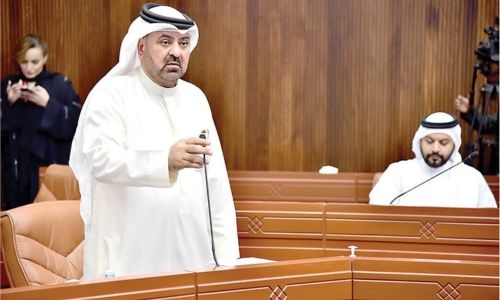MP Mohammed Al Marifi has proposed a draft law that would require the government to provide written feedback to the parliamentary investigation committees’ recommendations within two months. The suggested amendment to Article 164 of Decree Law No. 54 of 2002 aims to ensure that the government responds to the proposals submitted by such committees, explaining the reasons if they are not adopted.
The proposed change highlights the importance of the parliamentary inquiry tool in overseeing potential wrongdoings and holding the government accountable. By requiring the government to respond within a specific timeframe, the draft law aims to ensure that the inquiry’s influence extends beyond the initial discussion and leads to continued engagement between the government and the Parliament.
According to Al Marifi, the parliamentary inquiry tool is vital for uncovering potential wrongdoings and generating lasting impact beyond a singular session. By obliging the government to respond to the inquiry’s proposals and recommendations, the draft law seeks to promote a continuous dialogue that allows for a thorough examination of the government’s justifications and opens the door for further parliamentary action, if necessary.
The proposed amendment to Article 164 serves to strengthen the oversight capabilities of the Parliament and enhance transparency in government operations. By mandating the government to provide written feedback on parliamentary recommendations within a specified timeframe, the draft law aims to create a more accountable and responsive governance system that prioritizes effective communication and engagement between the legislative and executive branches.
In summary, MP Mohammed Al Marifi’s draft law seeks to enhance the effectiveness of parliamentary investigation committees by requiring the government to respond to their recommendations in writing within two months. The proposed amendment to Article 164 aims to promote accountability, transparency, and continuous dialogue between the government and the Parliament, ultimately strengthening the oversight mechanisms and ensuring the proper functioning of the legislative process in Bahrain. By prioritizing timely feedback and communication, the draft law aims to foster a culture of accountability and responsibility in governmental decision-making processes.
















